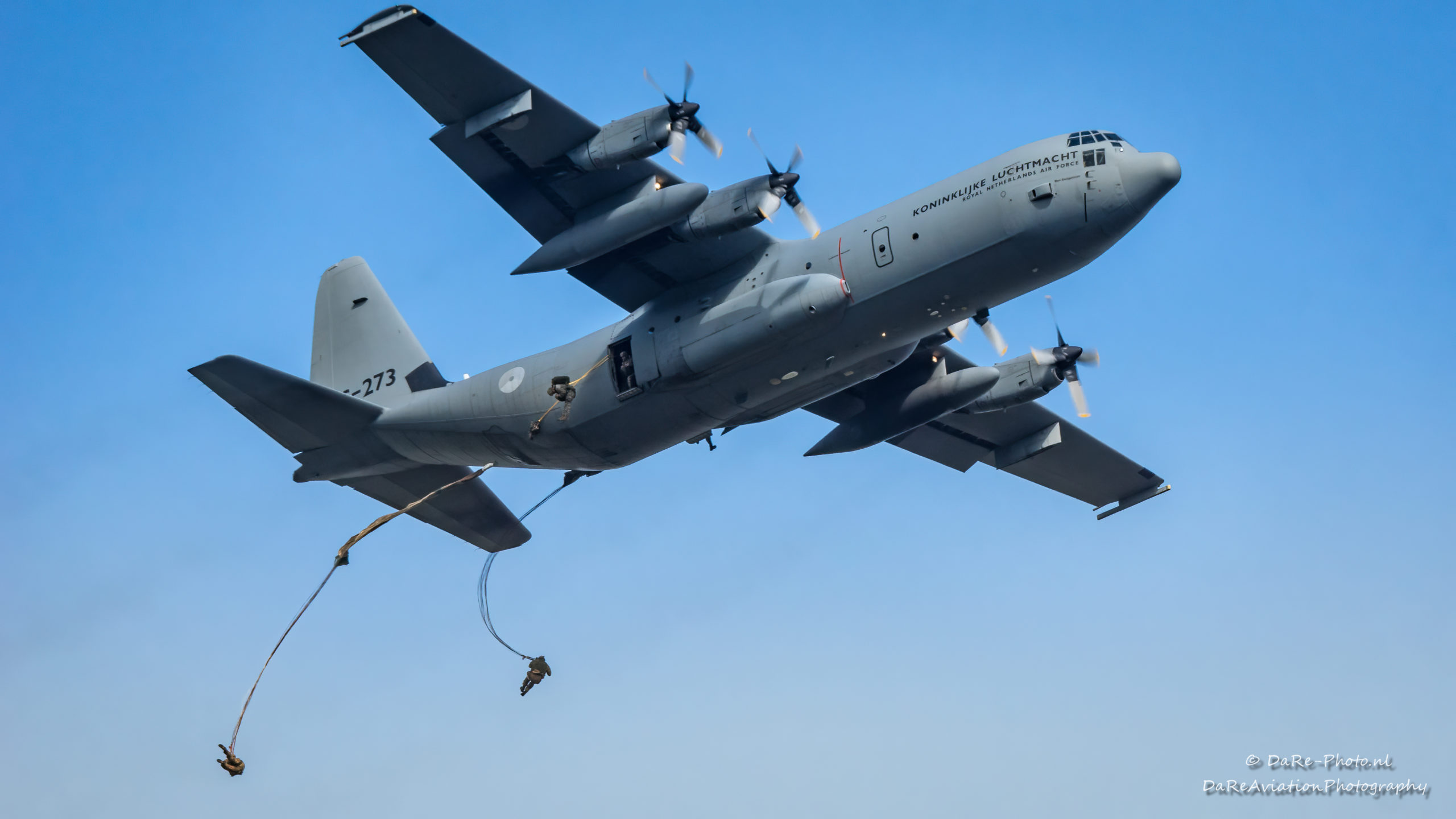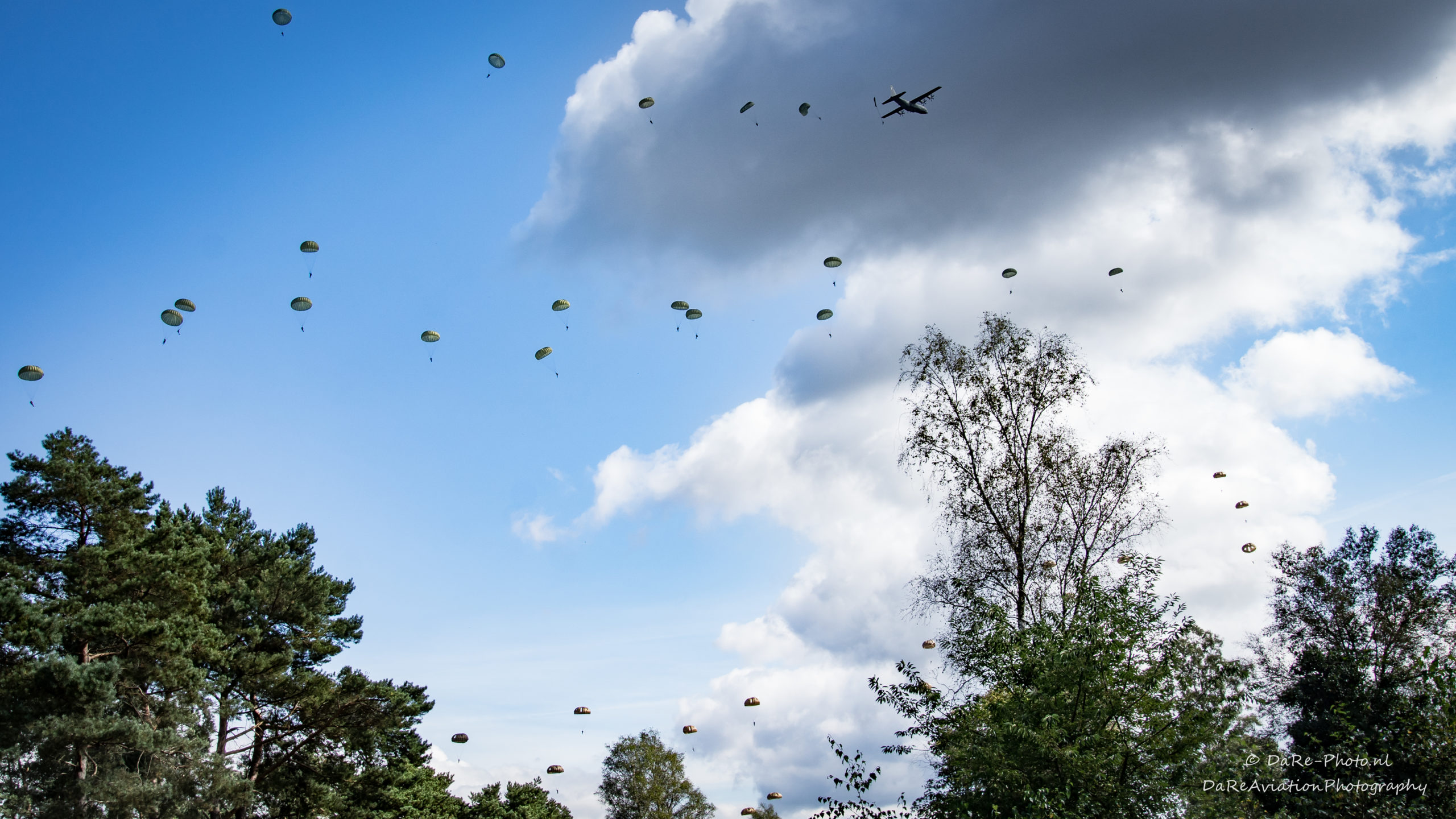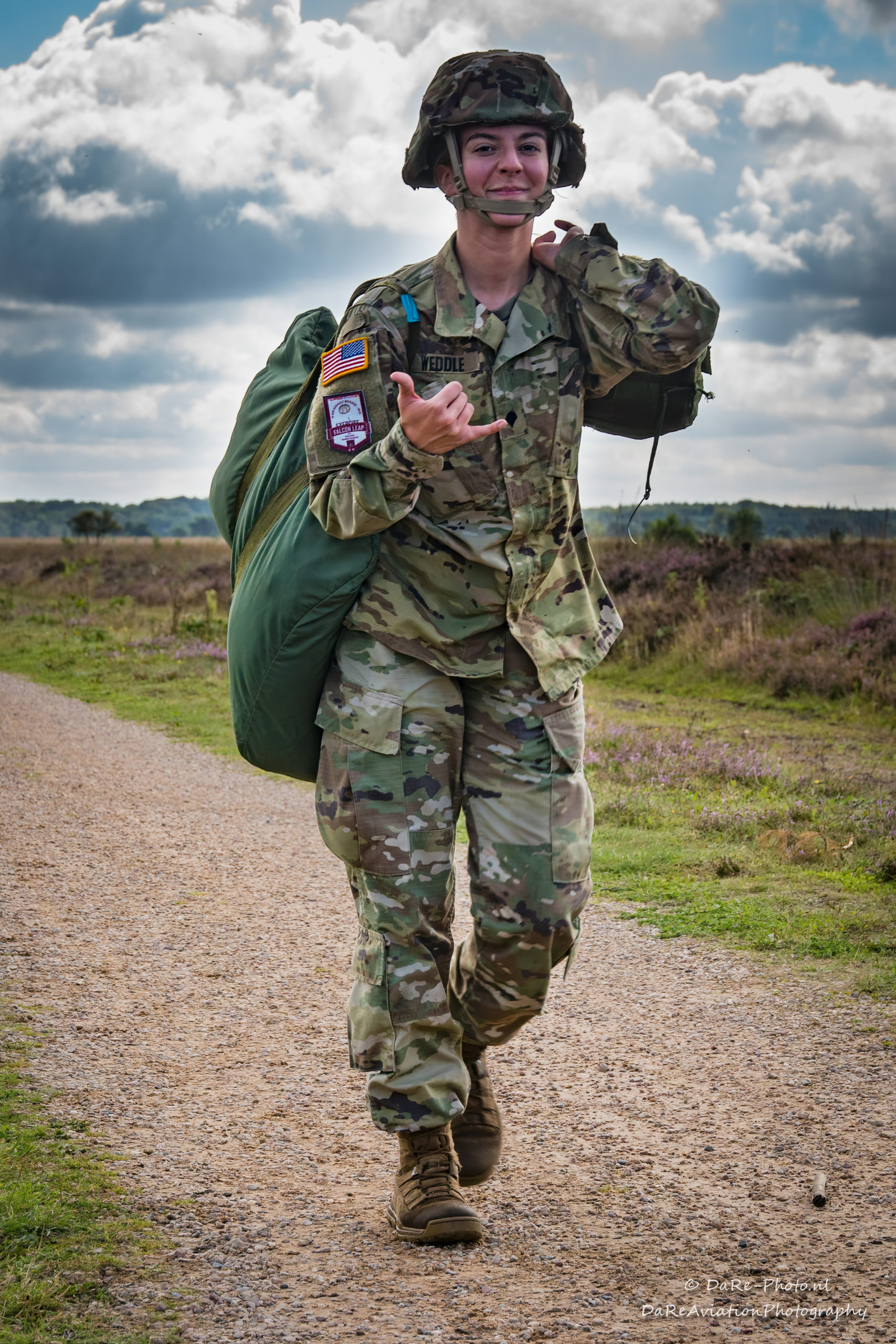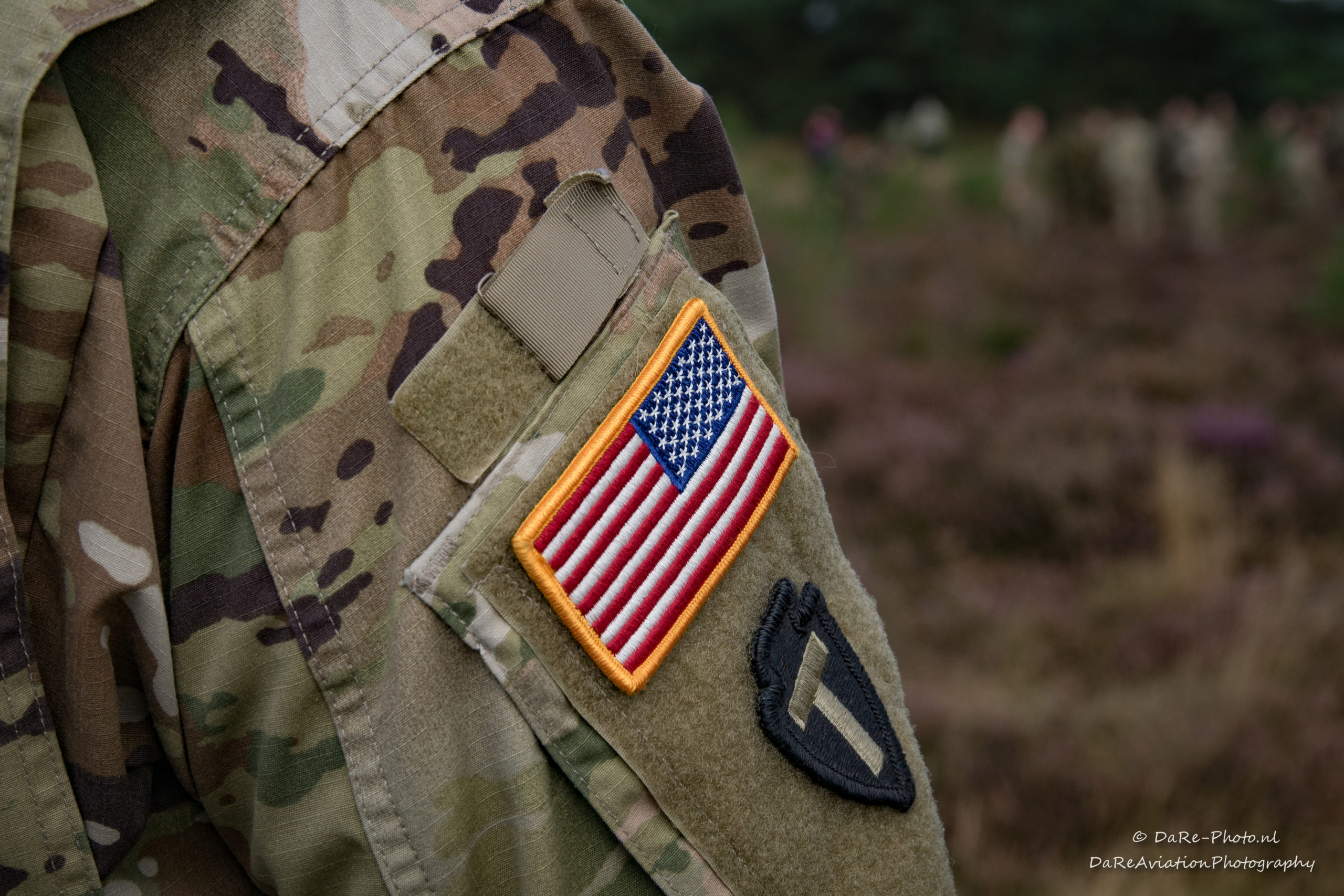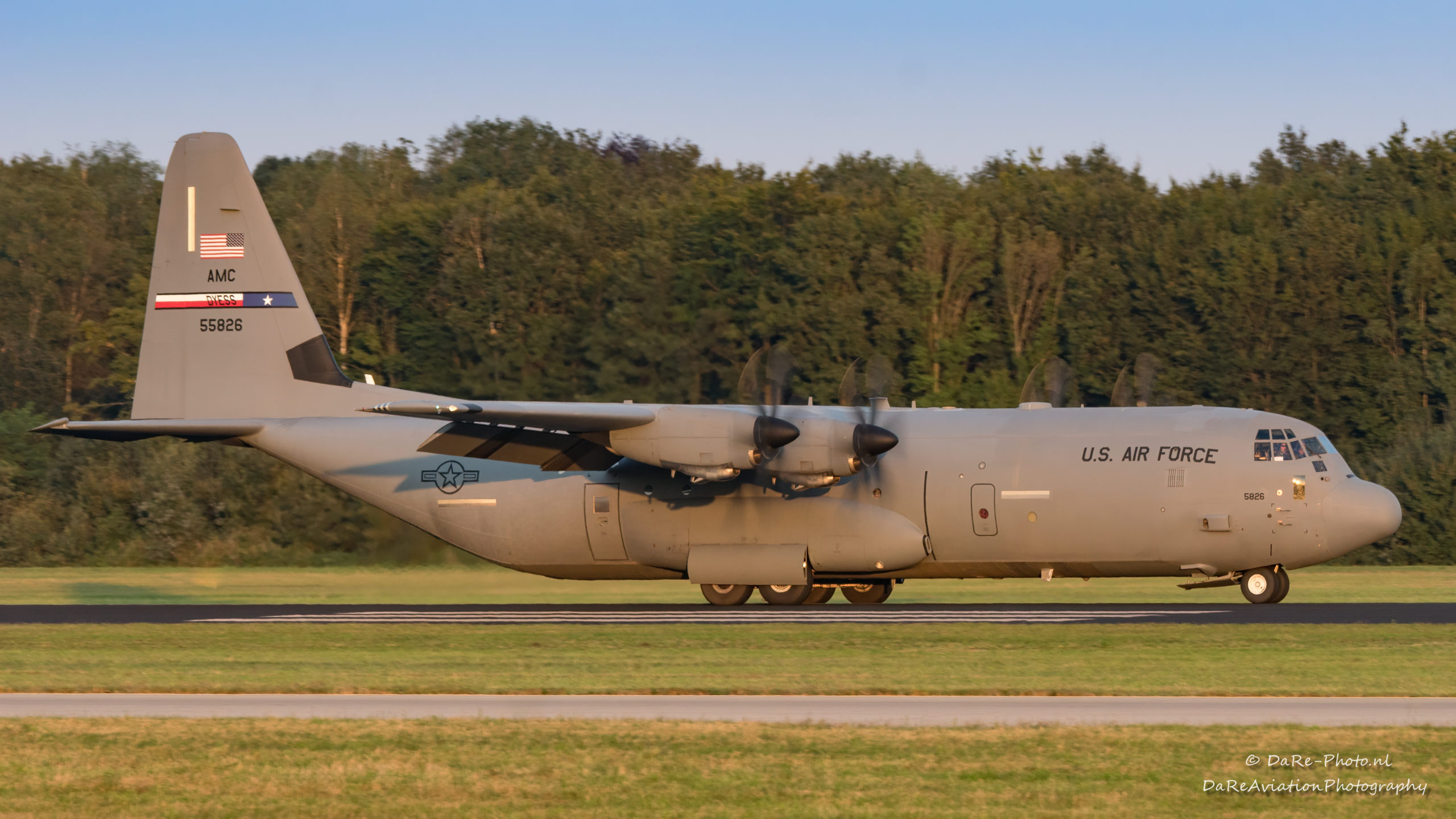
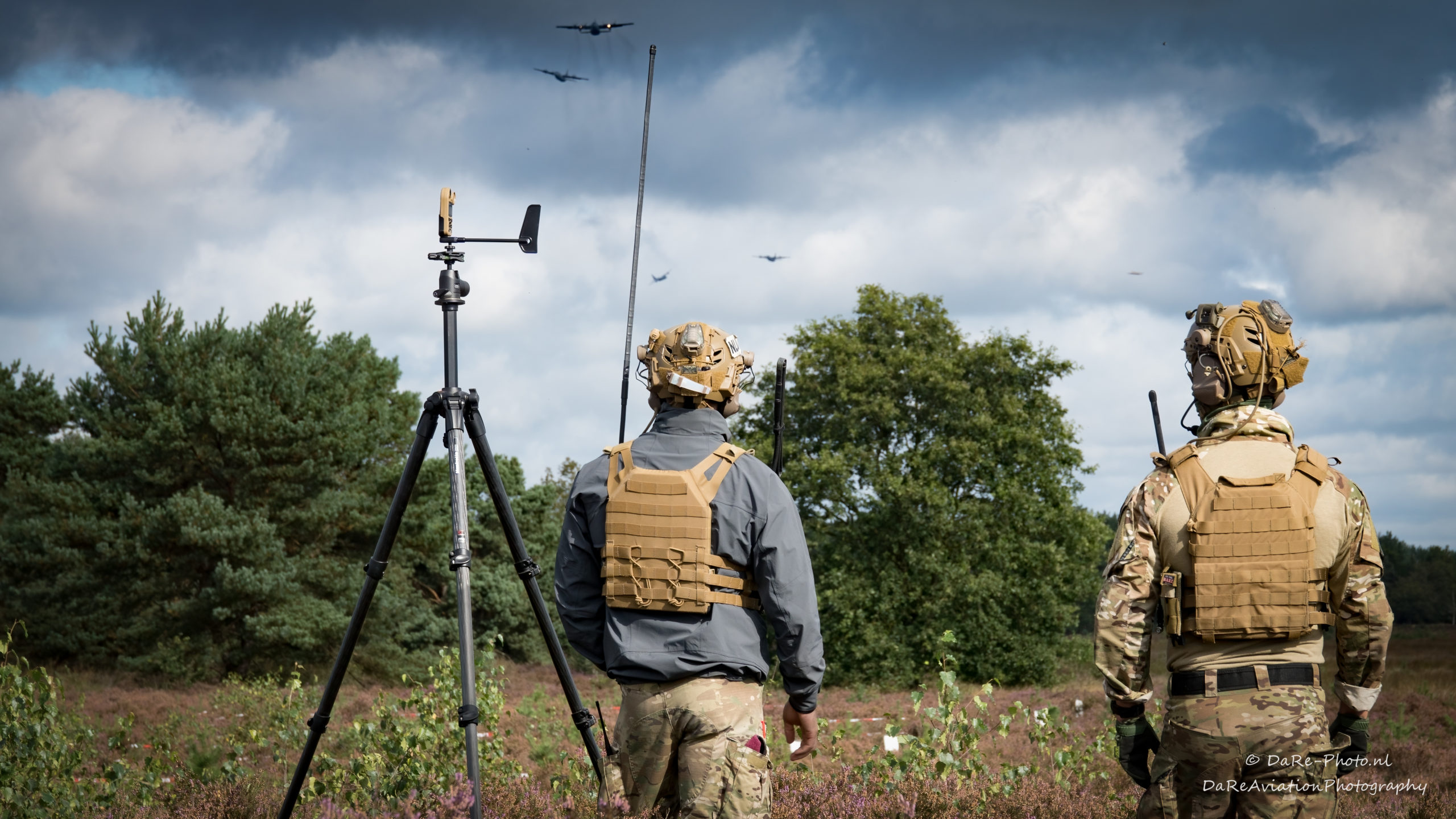
Every year, the exercise Falcon Leap is executed in the Netherlands, lead by the 11th Air Manouvring Brigade based at Schaarsbergen. The exercise was divided in two parts. The fist week was used to drop heavy cargo loads and the second week was used to execute paradroppings.
The exercise saw its ending with a mass drop above the Ginkel Heath in order to commemorate Market Garden.
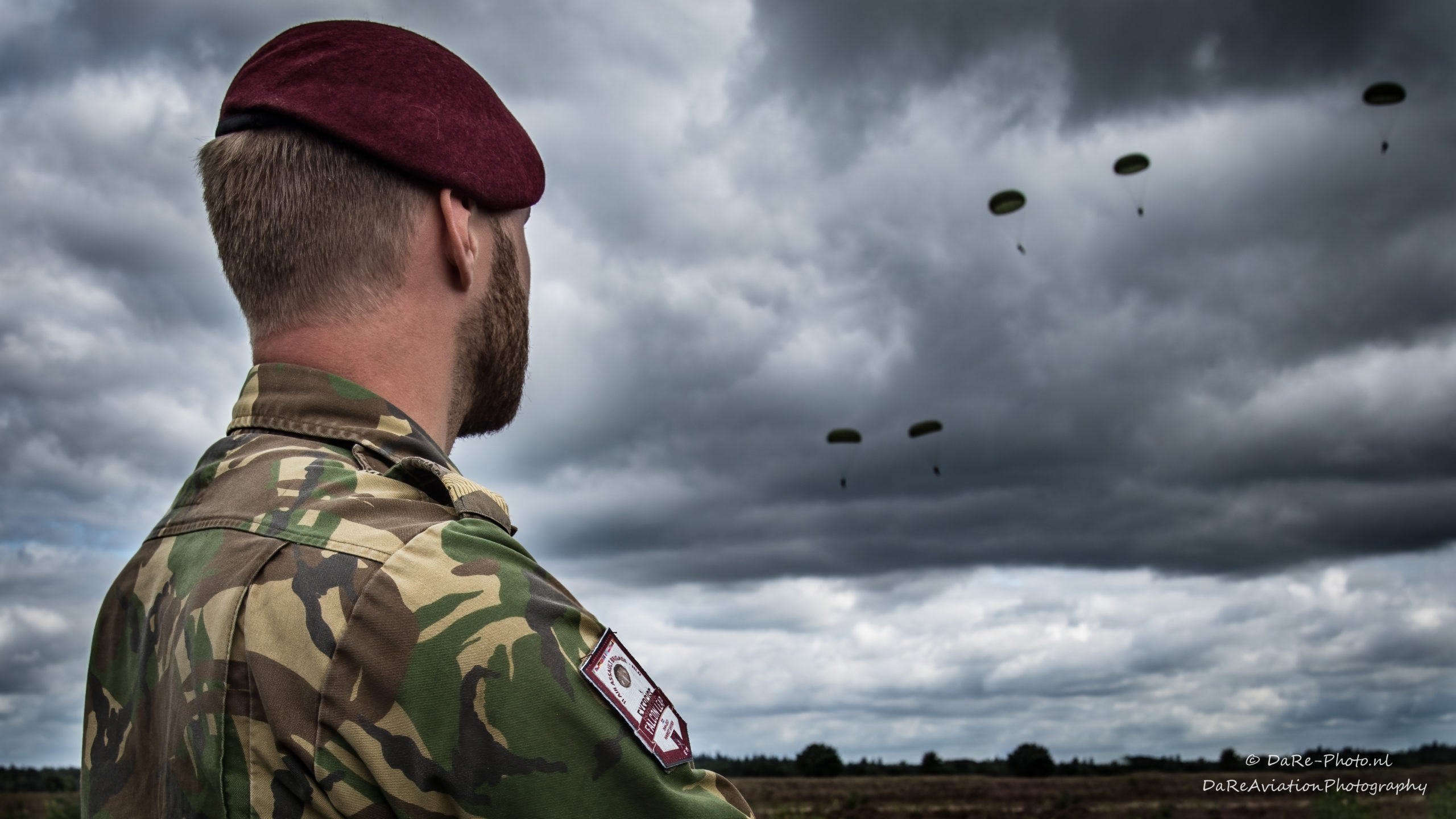
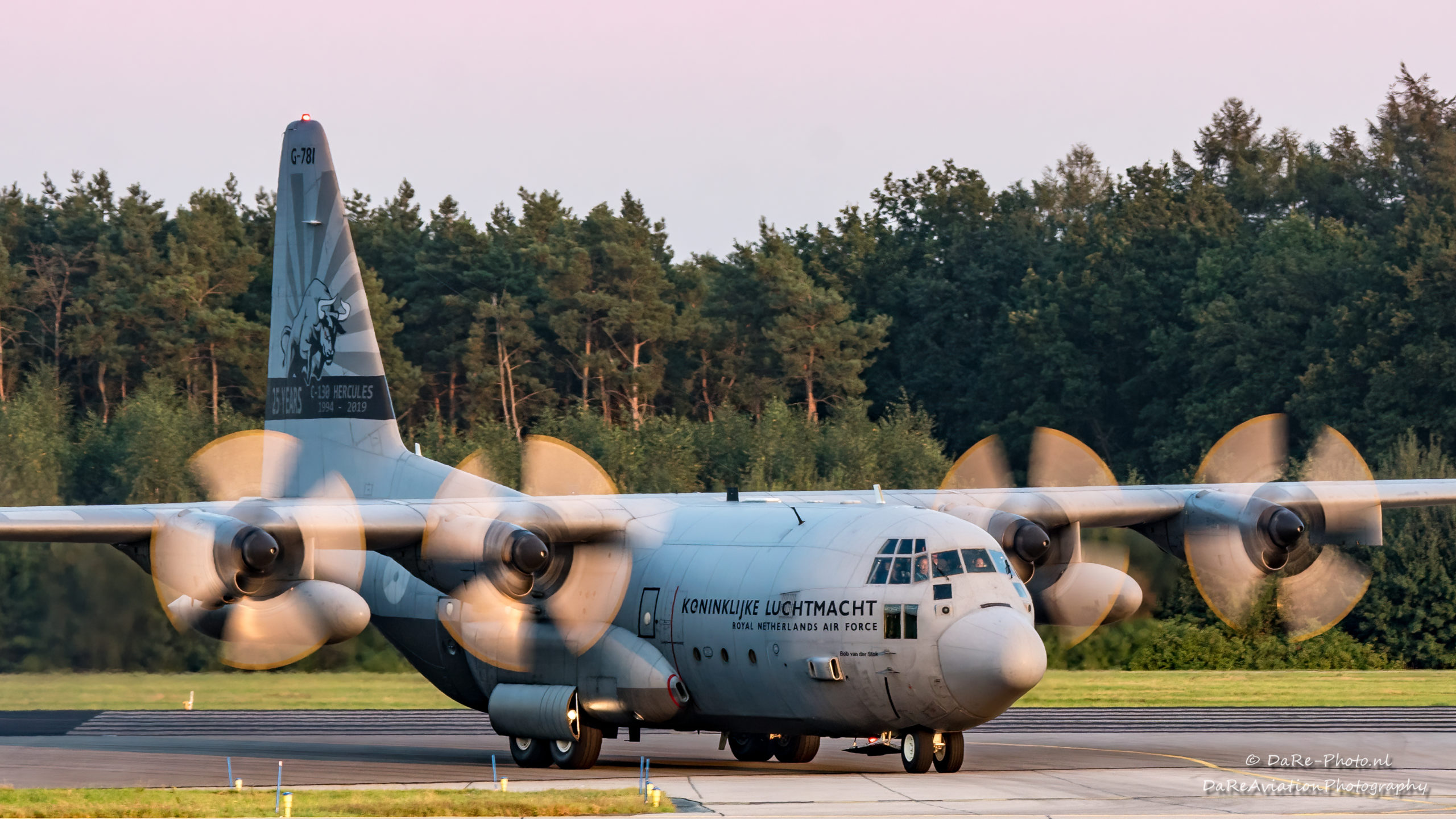
Normaly only fixed wing airplanes take part in the exercise, but this year also two US Army CH-47F based in Germany and a Tjechian Airforce Mi-17 HIP took part. They were temporarily based at Volkel Airbase during their stay and were using Eindhoven, just like all the transportaircraft to pick theirloads.
It was the first time, helicopters were used to drop during this exercise.
Participants :
- C-130H Royal Netherlands Airforce 336 sqn
- C-130J United States Airforce 317th Airlift Wing
- C-130J-30 Italian Airforce 50th gruppo
- C-295 Polish Airforce 13th ELTr
- M-28 civil
- CH-47F Unites States Army 1 CAB
- Mi-171 Sh Czechian Airforce 222.vl
With tactical transport aicraft from 336 sqn and international partners, cargolods were dropped above the Marnewaard and Schaffen trainingareas ( Belgium ) and Deelen Airbase. About 80 container delivery systems were dropped and one heavy load was dropped. This was done together with American, Polish and Italian partners. Falcon Leap prrovided the oppertunity to train together and become familiar with each other’s equipment and procedures.
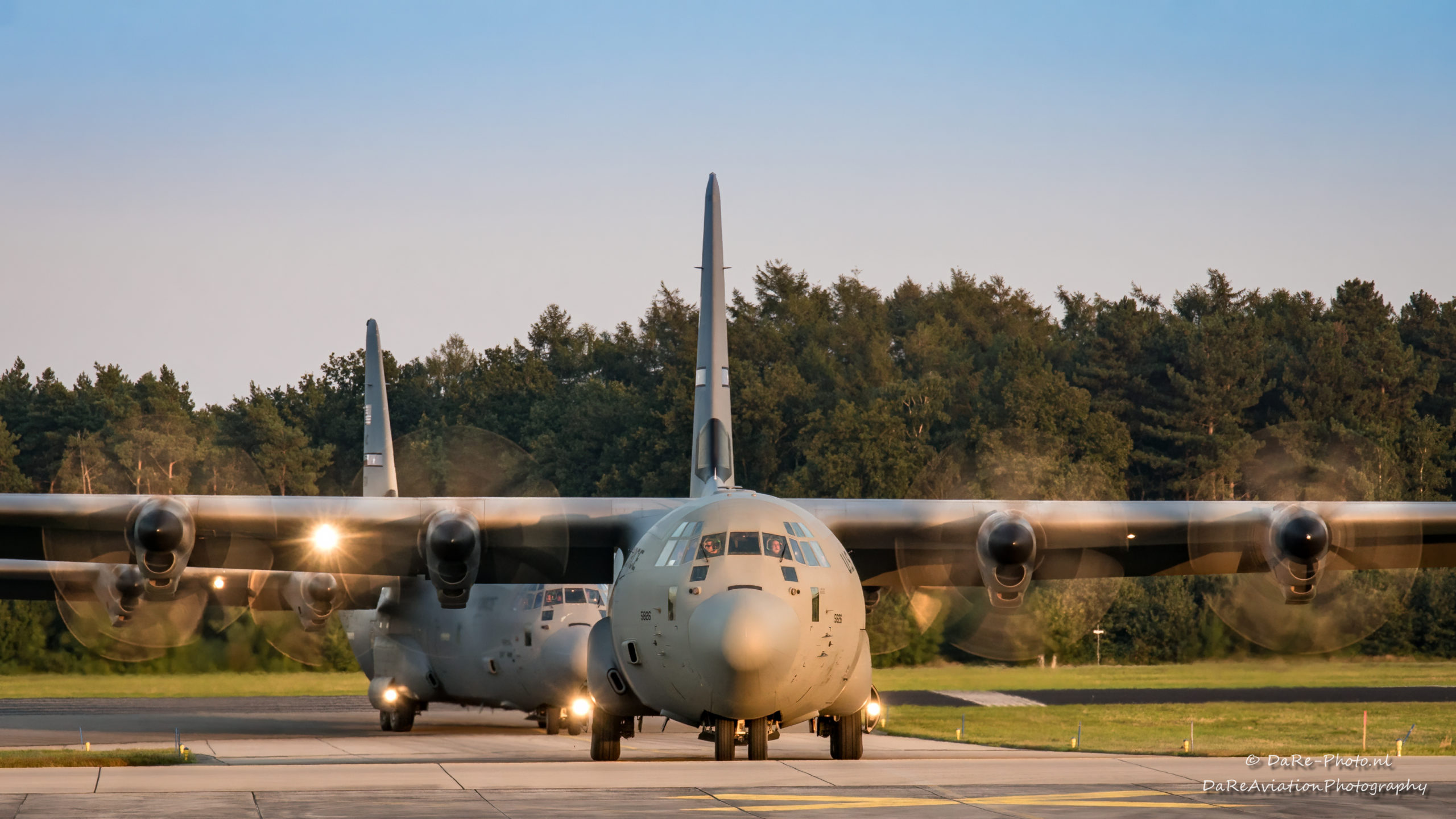
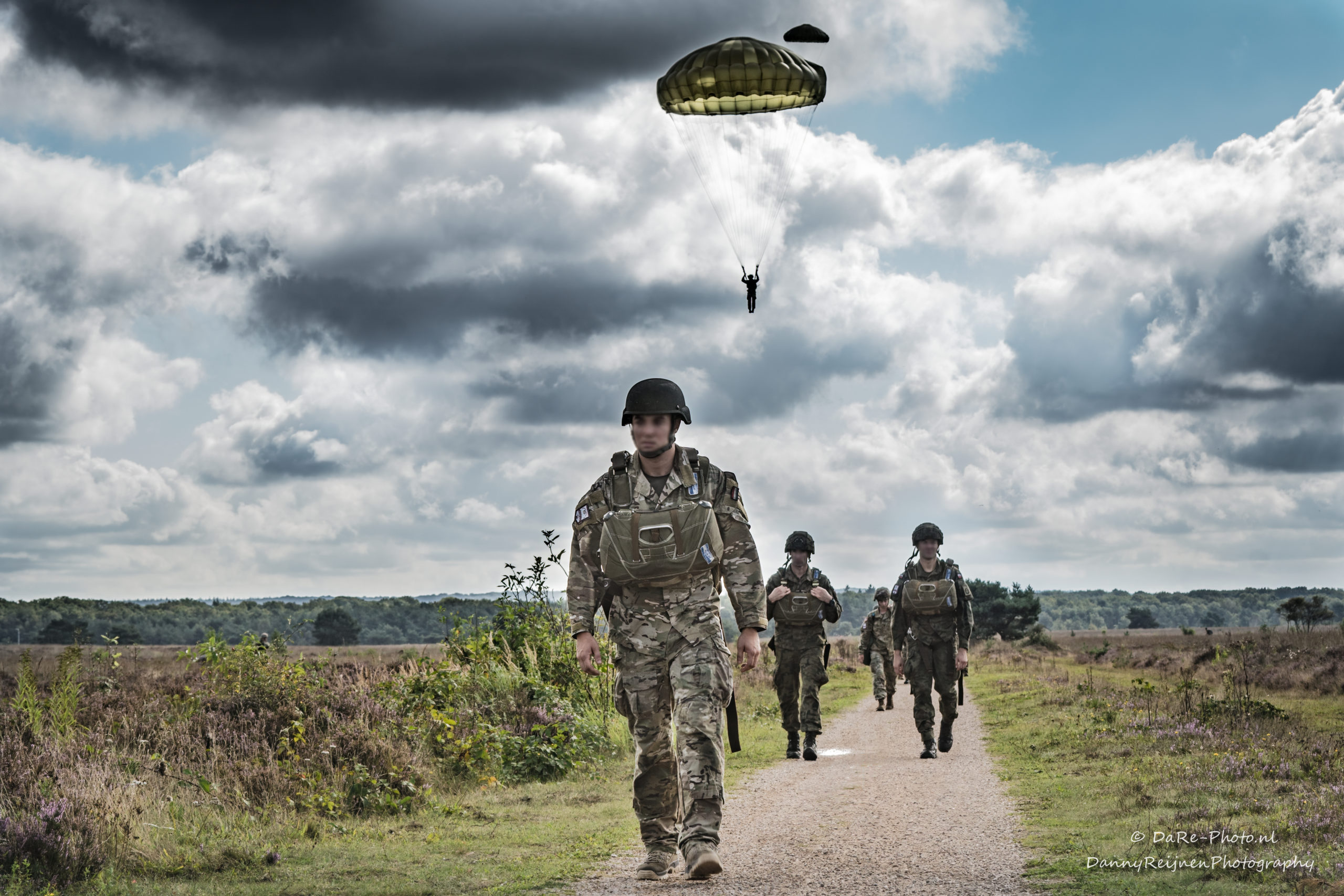
A possible airborne operation nowadays always takes place in collaboration wih coalition toops. Interoperability, using the same procedures and working methods, is essential. The used containers are very suitable for providing poorly accessible troops with vurlnerable items such as food and ammunition. This also applies to relief supplies to people in a disaster area.
During Falcon Leap, a so-called cross loading was done for the firs time. Dutch payloads were ejected from a Polish C-295M transport aircraft. A heavy load ( moren then 1000 KG ) has also been dropped for the first time, led buy US airmen. Being able to drop such loads broadens the deplyability of the unit. In the future, the airmobile brigade wants to add this form of deployment to the operational toolbox.
This year, soldiers from ten countries participated in the paradrops. Dutch, Germans, Americans, Belgians, Poles, Greeks, Czechs, French, Italians and Portuguese. In total, more than 1000 paratroopers jumped over several drop zones, one of which was in Belgium. Most of the military personnel participating in Falcon Leap are experienced jumpers. Therefore a lot of them jumped with each other’s parachutes to gain experience.
But Falcon Leap isn’t just about collecting parawings from other countries. First Lieutenant Frank was the location manager at the Houtdorperveld drop zone on a jumpday. A Pathfinder team, a unit within the 11th airmanouvring brigade, was responsible for the dropzone in order to focus on air traffic and paradrops.
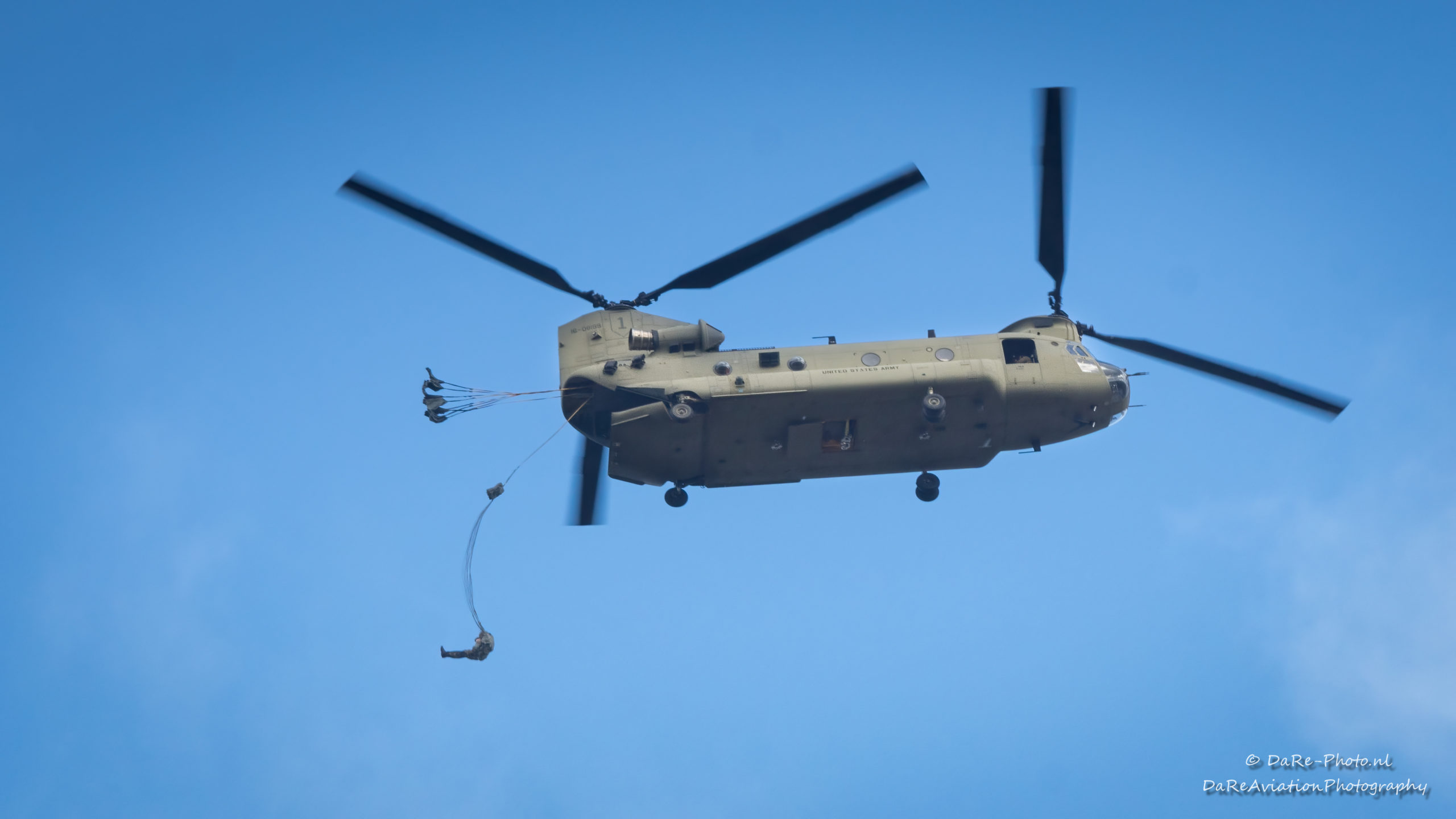
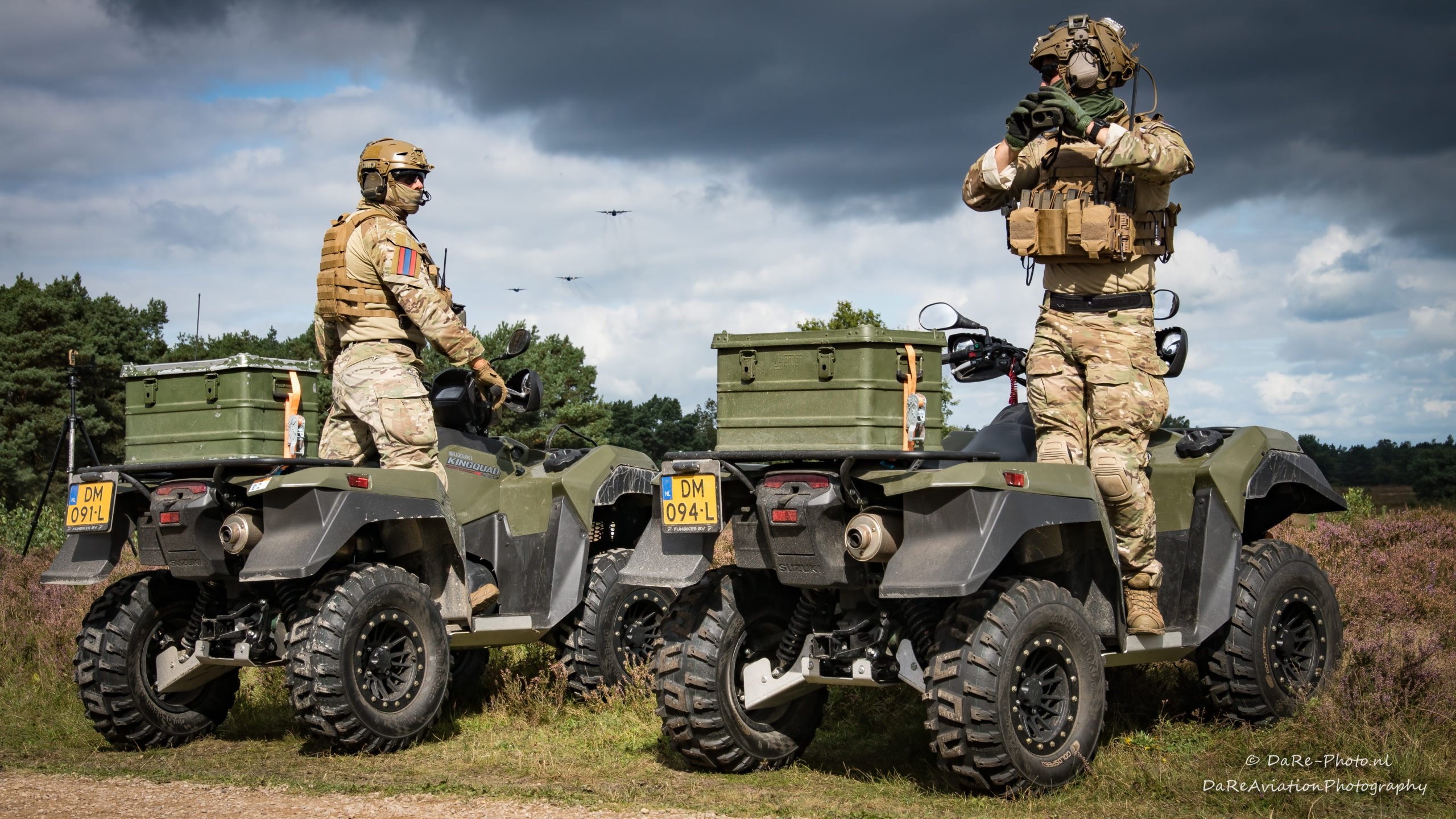
“Jumping with each other’s equipment is certainly useful. This way we can investigate where we can find each other”, Frank explained “A decision has already been made that we will purchase the same parachute with a number of partner countries but there are also differences in procedures that we can solve in this exercise. The Germans jump from 1500 feet, the British from 800 feet and the Netherlands from 1000 feet. In a joint deployment, this can be a problem if aircraft have to fly at different altitudes. If you really use each other’s stuff you run into things. These experiences enabled us to jump with German parachutes during the last Swift response.”
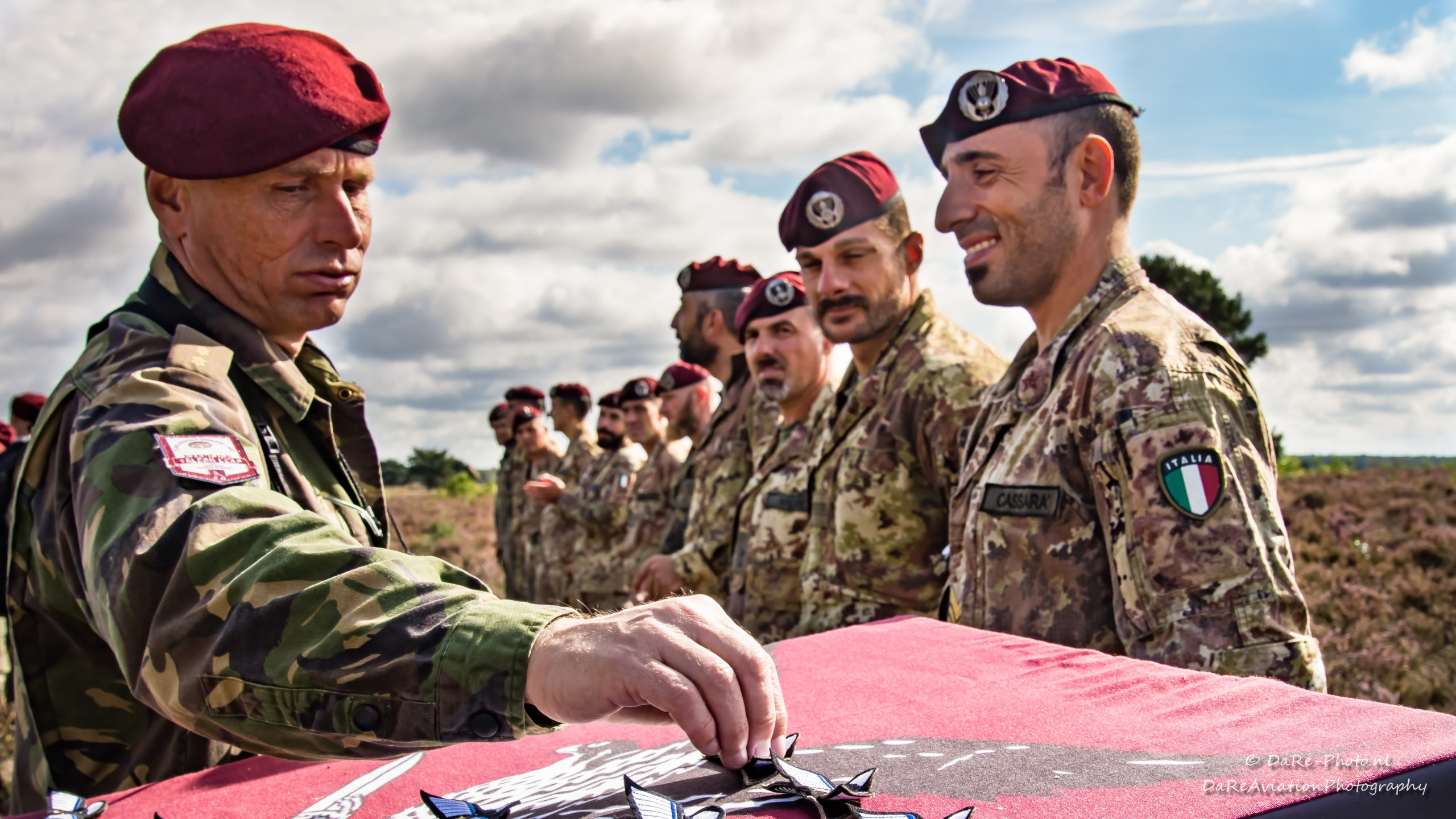
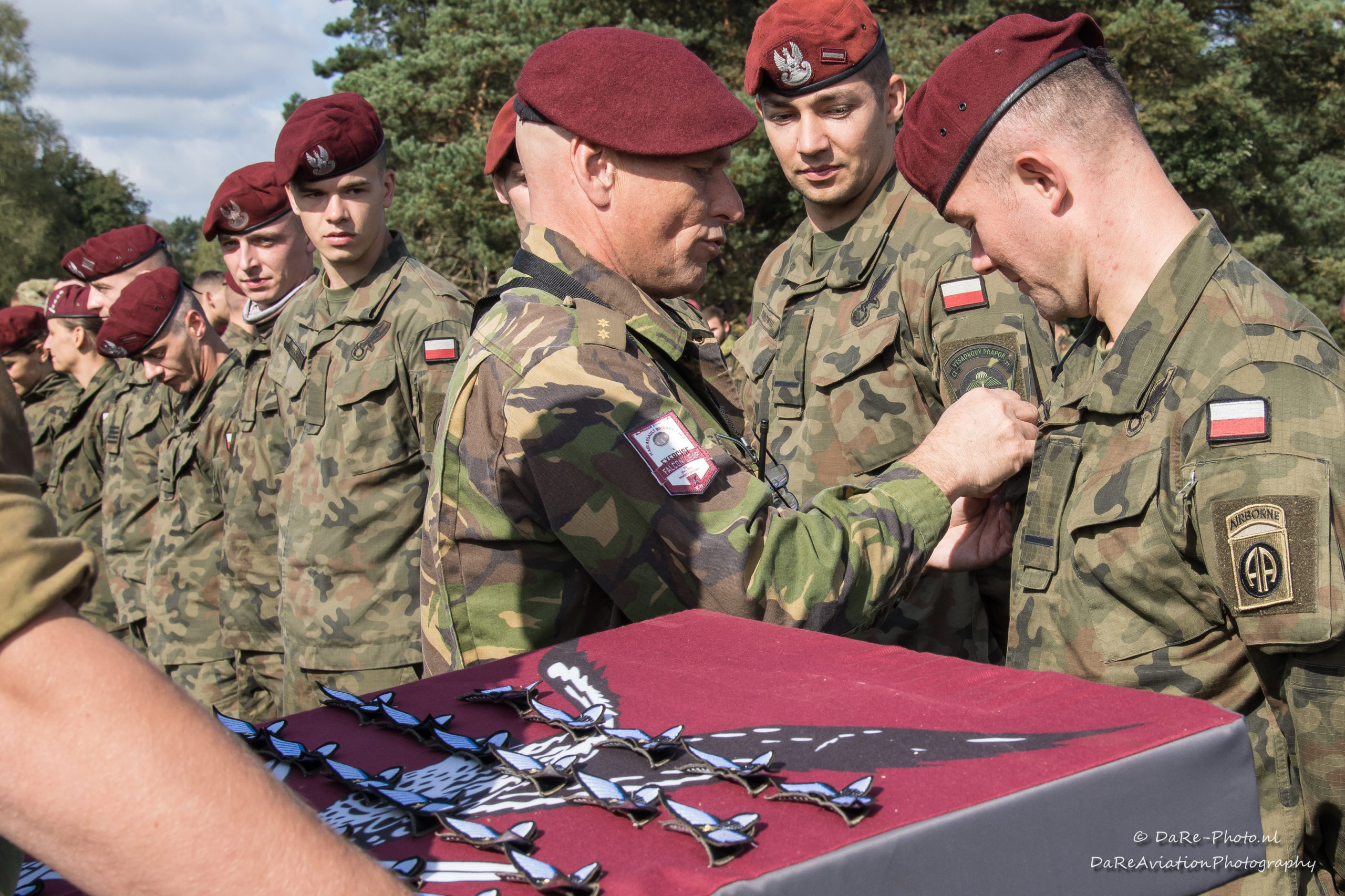
Lots of lessons are learned again in this exercise, making the NATO’s armed forces more inoperable then before the exercise. The final jump was made in the Ginkel Heath to commemorate Market Garden. This learning on the job resulted in lots of new friendships but with this final jump being executed, all airman remembered the ones that gave their lives to give us the possibility to train in a free environment but with a clear mission ; to defend freedom whatever happens.
